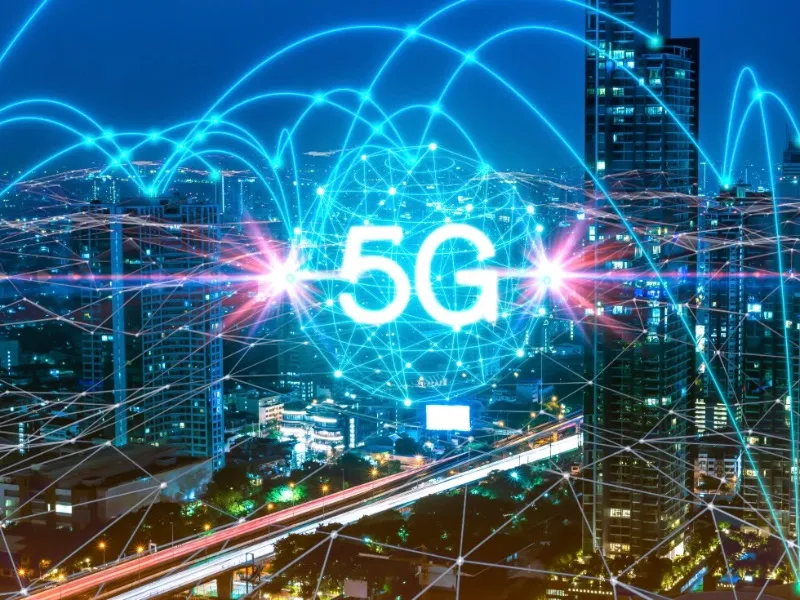- The Asia-Pacific (APAC) mobile industry is projected to exceed $1 trillion by 2030, driven by the accelerated adoption of 5G technologies throughout the region.
- The rapid adoption of 5G and the integration of AI technologies are setting APAC apart as a leader in technological innovation and economic development.
OUR TAKE
The mobile industry in the APAC region is rocketing towards the $1 trillion mark! 5G is spreading rapidly in places like Australia and India, akin to a technological land grab. Its growth rate, exceeding the global average by 3%, is thanks to smart factories and IoT devices, which are leveraging 5G to revolutionise manufacturing. Financial institutions and governments are also embracing digital transformation, with 5G as their new darling. Telecom operators are eagerly investing in AI innovation, fearing to miss out on the next tech boom. The Global Telco AI Alliance’s work on large language models is thrilling, hinting at a massive storm brewing in the APAC mobile industry over the next eight years.
–Miurio huang, BTW reporter
What happened
The Asia-Pacific (APAC) mobile industry is projected to exceed $1 trillion by 2030, driven by the accelerated adoption of 5G technologies throughout the region. This projection comes from the GSMA’s Mobile Economy Asia-Pacific 2024 report, which details the economic impact and future growth of mobile technologies in the APAC region. In 2023, mobile technologies and services contributed 5.3% to APAC’s GDP, amounting to $880 billion in economic value. The proliferation of commercial 5G networks in key markets such as Australia, India, Japan, the Philippines, Singapore, South Korea, and Thailand is expected to further enhance this growth trajectory.
Between 2023 and 2030, the mobile industry’s contribution to the APAC economy is anticipated to increase by 15%, surpassing the global average growth rate of 12% for the same period. The manufacturing sector is set to benefit significantly from this growth, particularly through new 5G-enabled applications like smart factories, smart grids, and Internet of Things (IoT) products. Additionally, financial services and public administration are poised to leverage 5G to digitally transform their operations.
The growing integration of artificial intelligence (AI) is also expected to bolster the mobile industry’s expansion in APAC. Operators across the region are investing in generative AI to enhance internal processes and create new revenue streams. Notably, the Global Telco AI Alliance, comprising Singtel, SK Telecom, Softbank, and e&, is working on developing telecom-specific large language models to further drive innovation.
Also read: APAC CDN Summit 2024: Looking to the future of CDN technology
Also read: Nokia sees lowest quarterly revenue since 2015 amid 5G slump
Why it’s important
The projected growth of the APAC mobile industry highlights the region’s pivotal role in the global digital economy. The rapid adoption of 5G and the integration of AI technologies are setting APAC apart as a leader in technological innovation and economic development. This surge is expected to create significant opportunities across various sectors, especially manufacturing and fintech, where 5G’s capabilities are likely to drive substantial advancements.
Julian Gorman, head of APAC at the GSMA, remarked on the remarkable growth in mobile internet usage in Asia-Pacific over the past decade and emphasised the region’s continued innovation. He pointed out that the substantial investments in 5G infrastructure by mobile operators and governments position many APAC nations to achieve strong economic growth and usher in a new era of innovation.
However, the report also underscores ongoing challenges. In some areas, particularly in Bangladesh, India, and Pakistan, millions of people are still excluded from the mobile revolution. Barriers such as high device costs and limited digital skills among older populations impede wider adoption. Addressing these gaps and building online trust are crucial for closing the digital divide and ensuring equitable access to the transformative benefits of mobile technology in sectors like finance, education, and health.
The anticipated surpassing of the $1 trillion mark underscores APAC’s role in the mobile industry and highlights the significant economic and social impact of advancing mobile and digital technologies in the region.

